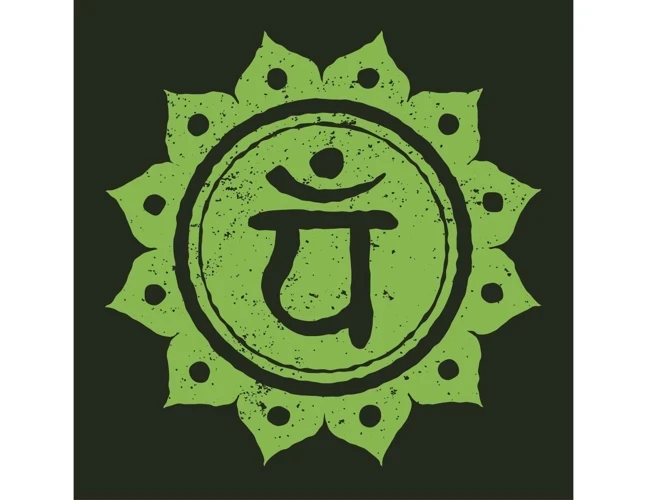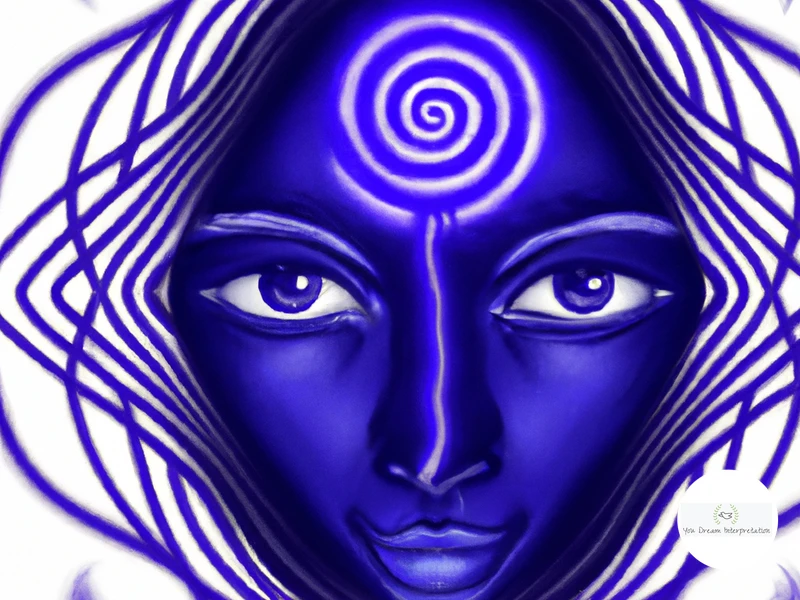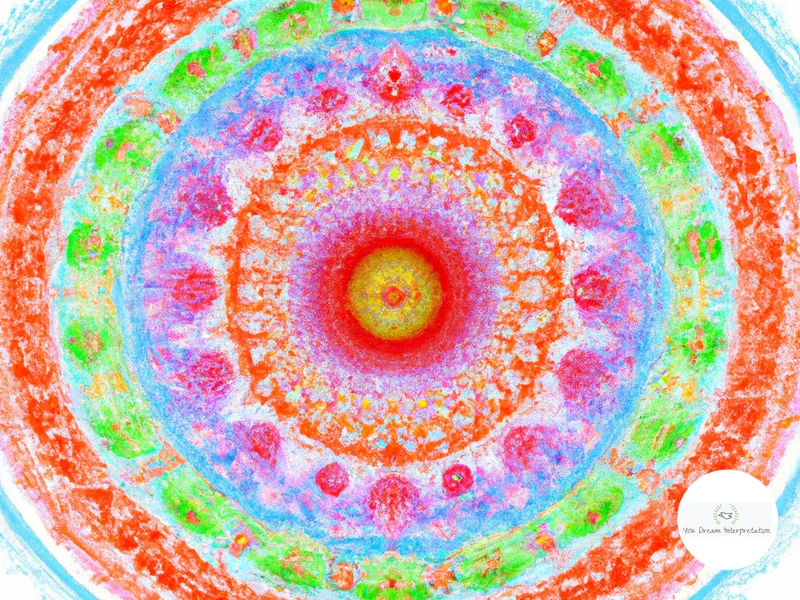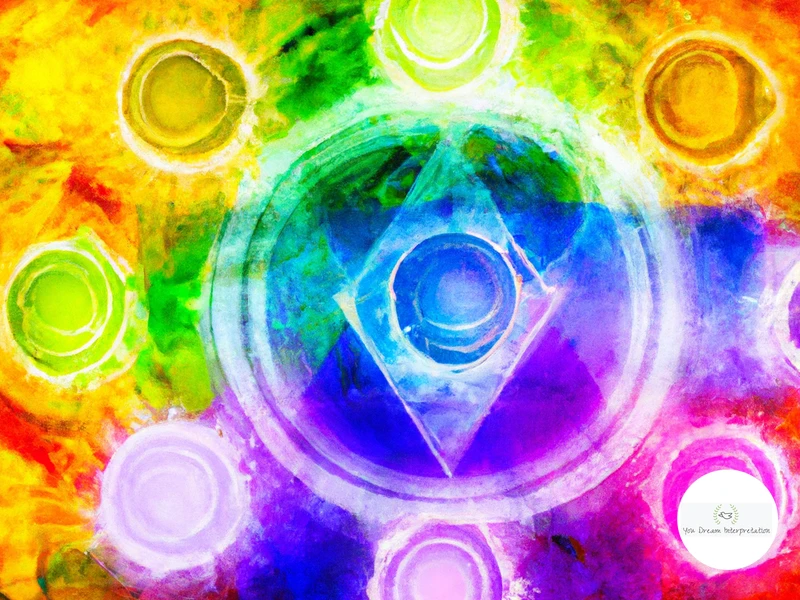Have you ever wondered why you have certain personality traits or tendencies? The answer may lie in the ancient practices of chakra healing and numerology. By understanding the relationship between your chakra energy centers and numerology, you can gain insight into your unique personality traits and characteristics. In this article, we will explore each of the seven chakras and how they correspond to specific numerological calculations. By the end, you’ll have a deeper understanding of yourself and practical tips for balancing your chakras to align your energies and achieve personal growth. So, let’s delve into the fascinating world of chakras and numerology to discover the secrets behind your personality.
Understanding Chakras and Numerology

Understanding Chakras and Numerology
Chakras are the seven energy centers in the body that are believed to play a vital role in our physical, emotional, and spiritual well-being. Each chakra corresponds to a different aspect of our being and is associated with specific personality traits and characteristics. Numerology, on the other hand, is a mystical practice that assigns numerical values to letters and numbers to gain insight into various aspects of our lives. The combination of chakra healing and numerology provides a holistic approach to understanding ourselves on a deeper level.
To grasp the connection between chakras and numerology, let’s break it down further. Each chakra is linked to a specific number, and this number holds significance in numerology. For example, the root chakra (Chakra 1) is associated with the number 1, representing stability, security, and grounding. The sacral chakra (Chakra 2) is associated with the number 2, symbolizing creativity, sensuality, and emotional balance. Moving up the energy centers, the solar plexus chakra (Chakra 3) aligns with the number 3, representing personal power, confidence, and manifestation.
This correlation between chakras and numerology allows us to gain a deeper understanding of our personality traits and tendencies. By calculating our numerology based on our birth date or name, we can reveal the dominant chakras in our energy system and understand how they influence our behavior, strengths, and weaknesses. This insight can aid in personal growth, self-awareness, and even decision-making processes.
Intrigued by this interplay of chakras and numerology? In the following sections, we will explore each chakra in detail, uncovering its personality traits and characteristics. So, let’s dive into the fascinating world of chakras and numerology and unravel the hidden aspects of our being.
Internal link: Using Numerology to Boost Your Energy and Vitality
The Root Chakra (Chakra 1)
The Root Chakra, also known as Chakra 1, is the foundation of our energy system. Located at the base of the spine, it is associated with the color red and symbolizes stability, security, and grounding. People with a dominant Root Chakra tend to have a strong sense of practicality and determination. They are reliable, responsible, and possess a deep connection to their physical bodies. These individuals often excel in areas that require discipline and focus, such as finance or physical fitness. However, an imbalanced Root Chakra can manifest as feelings of insecurity, fear, and an inability to adapt to change. To balance and strengthen the Root Chakra, one can engage in grounding exercises like walking barefoot in nature or practicing yoga poses that target the lower body. For those interested in exploring how their Root Chakra influences their love life, check out this article on numerology compatibility in love.
Personality Traits
Personality Traits
The personality traits associated with each chakra provide valuable insights into our strengths, weaknesses, and overall tendencies. By understanding these traits, we can gain a deeper understanding of ourselves and work towards achieving balance and harmony in our lives.
Starting with the root chakra (Chakra 1), individuals with a dominant root chakra tend to be grounded, practical, and focused on stability. They have a strong sense of security and are known for their reliability and loyalty. However, they may also be resistant to change and feel overwhelmed by uncertainty, making it important for them to work on embracing flexibility and adapting to new situations.
Moving on to the sacral chakra (Chakra 2), those with a prominent sacral chakra are often creative, passionate, and in touch with their emotions. They possess a natural charm and charisma that draws others to them. They thrive on self-expression and enjoy exploring their sensual desires. However, they may sometimes struggle with emotional balance, swinging between extremes of pleasure and guilt. Finding ways to channel their creativity and emotions in a healthy manner can help maintain their overall well-being.
Individuals with a strong solar plexus chakra (Chakra 3) exude confidence, willpower, and determination. They have a strong sense of personal power and are driven to achieve their goals. They possess excellent leadership qualities and take charge of situations effortlessly. However, they should be mindful of not becoming overly controlling or dominating, as it may hinder their relationships and personal growth.
The heart chakra (Chakra 4) represents love, compassion, and empathy. Those with an open heart chakra are natural healers and nurturers, always ready to offer support and kindness to others. They are deeply connected to their emotions and have the ability to forge authentic connections with people. However, they may sometimes place others’ needs above their own, leading to self-neglect. Learning to establish healthy boundaries and practicing self-care is essential for maintaining their emotional well-being.
Moving up to the throat chakra (Chakra 5), individuals with a strong throat chakra excel in communication and self-expression. They have a natural ability to articulate their thoughts and ideas effectively. They are excellent listeners and are able to convey their message with clarity and conviction. However, they may also struggle with speaking their truth at times, fearing judgment or rejection. Honing their communication skills and embracing their authentic voice can help them overcome these challenges.
People with a developed third eye chakra (Chakra 6) possess exceptional intuition and inner wisdom. They have a strong connection to their higher selves and trust their inner guidance. They are seekers of truth and have a deep fascination with spirituality and metaphysical concepts. However, they may sometimes feel overwhelmed by their heightened sensitivity and intuitive abilities. Learning to trust their instincts and finding ways to ground themselves can help them navigate this aspect of their personality.
Finally, the crown chakra (Chakra 7) represents spirituality, consciousness, and enlightenment. Those with an activated crown chakra are highly spiritual and possess a deep understanding of the interconnectedness of all things. They have a profound sense of purpose and are committed to their spiritual growth and journey. However, they may sometimes struggle to stay grounded in daily life and need to find a balance between their spiritual pursuits and earthly responsibilities.
Understanding these personality traits associated with each chakra can guide us on a path of personal growth and self-improvement. It allows us to recognize our strengths, embrace our weaknesses, and work towards achieving harmony and balance within ourselves.
Internal link: The Relationship Between Life Path Numbers and Destiny
The Sacral Chakra (Chakra 2)

The Sacral Chakra, also known as Chakra 2, is the energy center located in the lower abdomen. It is associated with creativity, sensuality, and emotional balance. People with a dominant Sacral Chakra tend to be artistic, passionate, and in touch with their emotions. They have a deep appreciation for beauty, whether it’s in the form of art, music, or nature. These individuals are often highly imaginative and enjoy expressing themselves through various creative outlets. They also possess a strong sense of intuition and can easily connect with their emotions and the emotions of others. The Sacral Chakra is essential for maintaining a healthy flow of emotions, creativity, and pleasure. When this chakra is balanced, individuals feel a sense of vitality, joy, and passion in their lives. However, an imbalance in the Sacral Chakra can lead to emotional instability, creative blocks, or difficulties in forming intimate relationships. By understanding the traits associated with the Sacral Chakra, we can gain insight into our own unique personality and work towards achieving balance and harmony in our lives.
Personality Traits
Personality Traits
Each chakra is associated with specific personality traits and characteristics that reflect the energy it governs. Understanding these traits can provide valuable insights into our own strengths, weaknesses, and areas of personal growth.
Starting with the root chakra (Chakra 1), individuals who resonate strongly with this energy center tend to exhibit traits such as stability, practicality, and a strong sense of security. They are grounded individuals who feel comfortable in their own skin and value a sense of stability in their lives. However, they may also struggle with issues related to fear, worry, or feeling stuck in their comfort zone.
Moving on to the sacral chakra (Chakra 2), those who align with this energy center tend to be creative, passionate, and highly intuitive. They are in touch with their emotions, express themselves freely, and enjoy sensory experiences. However, they may also struggle with imbalances in their emotions, possessiveness, or difficulty establishing healthy boundaries.
The solar plexus chakra (Chakra 3) is associated with traits such as personal power, confidence, and a strong sense of self. Individuals with a well-balanced solar plexus chakra are assertive, self-motivated, and exhibit leadership qualities. On the flip side, imbalances in this chakra may lead to issues such as low self-esteem, indecisiveness, or an overbearing nature.
Moving up to the heart chakra (Chakra 4), individuals with a strong connection to this energy center tend to be compassionate, loving, and empathetic. They value relationships, show kindness towards others, and have a genuine desire to help and heal. However, they may struggle with issues such as codependency, holding grudges, or an inability to set healthy boundaries.
The throat chakra (Chakra 5) is associated with traits such as effective communication, self-expression, and creativity. Individuals with a balanced throat chakra are excellent communicators, both in verbal and non-verbal ways. They express themselves authentically and have a high level of creativity and self-expression. However, imbalances in this chakra can manifest as difficulty in speaking up, excessive talking, or a fear of public speaking.
Moving to the third eye chakra (Chakra 6), individuals who resonate with this energy center tend to possess traits such as intuition, insight, and heightened awareness. They have a strong sense of inner guidance and trust their instincts. They are often highly perceptive and have a natural inclination towards spirituality. However, imbalances in this chakra may lead to issues such as overreliance on intuition, difficulty in discerning reality from illusions, or an overactive mind.
Finally, the crown chakra (Chakra 7) is associated with traits such as spiritual connection, enlightenment, and a deep sense of purpose. Individuals with a well-balanced crown chakra are in touch with their higher self, have a strong sense of spirituality, and experience a deep connection to the universe. On the other hand, imbalances in this chakra can result in feelings of isolation, disconnectedness, or a lack of direction in life.
Understanding these personality traits linked to each chakra gives us a roadmap for personal growth and self-awareness. By recognizing our strengths and weaknesses, we can work towards balancing our chakras and aligning our energies for a more harmonious and fulfilling life.
The Solar Plexus Chakra (Chakra 3)
The Solar Plexus Chakra, also known as Chakra 3, is the energetic center located in the upper abdomen, just above the navel. This chakra is associated with personal power, confidence, and manifestation. People with a dominant Solar Plexus Chakra tend to possess strong leadership qualities, assertiveness, and a natural ability to take charge. They have a clear vision and the drive to turn their dreams into reality. These individuals are often charismatic and have a magnetic presence that attracts others. They exude self-confidence and are not afraid to speak their minds. However, it is important for them to maintain a balance in their Solar Plexus energy as an overactive chakra can lead to excessive control and dominance, while an underactive one may result in self-doubt and a lack of assertiveness. By nurturing their Solar Plexus Chakra, individuals can tap into their personal power and achieve their goals.
Personality Traits:
- Strong leadership qualities
- Confidence and self-assuredness
- Charismatic and influential
- Motivated and driven
- Clear vision and goal-oriented
- Sound decision-making abilities
- Ability to assert boundaries
- Effective communication skills
- Capable of manifesting desires
- Commanding presence
Personality Traits
Personality Traits
Each chakra is associated with specific personality traits and characteristics that can give us valuable insights into ourselves. Let’s explore the personality traits linked to each chakra:
1. Root Chakra (Chakra 1): The personality traits associated with the root chakra include stability, groundedness, and a strong sense of security. Individuals with a dominant root chakra are often practical, reliable, and determined. They tend to prioritize their basic needs and have a deep connection with the physical world.
2. Sacral Chakra (Chakra 2): The sacral chakra is linked to personality traits such as creativity, sensuality, and emotional balance. People with a prominent sacral chakra are often imaginative, passionate, and expressive. They have a strong connection to their emotions and are open to experiencing pleasure and joy.
3. Solar Plexus Chakra (Chakra 3): Personality traits associated with the solar plexus chakra include personal power, confidence, and manifestation. Individuals with a strong solar plexus chakra are often assertive, driven, and ambitious. They have a strong sense of self and an innate ability to take charge of their lives.
4. Heart Chakra (Chakra 4): The heart chakra is associated with personality traits such as love, compassion, and empathy. People with a predominant heart chakra are often kind, nurturing, and understanding. They have a natural inclination towards forming deep connections and maintaining harmonious relationships.
5. Throat Chakra (Chakra 5): Personality traits linked to the throat chakra include effective communication, self-expression, and creativity. Individuals with a dominant throat chakra are often excellent communicators, articulate, and persuasive. They have a strong desire to express themselves authentically and may excel in arts, writing, or public speaking.
6. Third Eye Chakra (Chakra 6): The third eye chakra is associated with traits such as intuition, insight, and spirituality. People with a prominent third eye chakra are often highly intuitive, perceptive, and spiritually aware. They have a deep sense of inner knowing and can tap into higher realms of consciousness.
7. Crown Chakra (Chakra 7): Personality traits linked to the crown chakra include enlightenment, transcendence, and spiritual connection. Individuals with a powerful crown chakra are often wise, spiritually attuned, and have a deep understanding of the universe. They may possess a deep sense of purpose and strive for spiritual growth.
Understanding the personality traits associated with each chakra can help us identify our strengths, weaknesses, and areas for personal growth. By exploring these traits, we gain a better understanding of ourselves and can work towards achieving balance and harmony within our chakra system.
Now that we have delved into the personality traits associated with each chakra, let’s explore how to calculate our chakra personality traits using numerology.
Internal link: Exploring the Relationship Between Life Path Numbers and Destiny
The Heart Chakra (Chakra 4)

The Heart Chakra, also known as Chakra 4, is located at the center of the chest and is associated with love, compassion, and emotional well-being. This chakra is represented by the color green and is connected to the element of air. People with a dominant Heart Chakra are known for their empathy, kindness, and ability to form deep and meaningful connections with others. They possess a strong sense of compassion and tend to prioritize the needs of others before their own. These individuals have a natural inclination towards creating harmonious relationships and fostering a sense of unity. They are often admired for their generosity, understanding, and the genuine love they radiate. However, it is important for those with a dominant Heart Chakra to maintain a balance and not neglect their own emotional needs in the process of caring for others. Understanding the characteristics associated with the Heart Chakra can help individuals recognize and nurture their capacity for love and compassion, leading to a more fulfilling and harmonious life.
Personality Traits
Personality Traits
Each chakra is associated with specific personality traits that reflect its energy and influence on our being. Understanding these personality traits can give us valuable insights into ourselves and how we interact with the world around us. Let’s explore the personality traits associated with each chakra:
1. Root Chakra (Chakra 1): The personality traits associated with the root chakra include stability, groundedness, and practicality. Individuals with a strong root chakra tend to be reliable, responsible, and focused on their physical and material needs. They have a strong sense of security and are often well-grounded in their beliefs and values.
2. Sacral Chakra (Chakra 2): The sacral chakra is linked to creativity, sensuality, and emotional balance. Those with a vibrant sacral chakra are often passionate, imaginative, and artistic. They are in touch with their emotions and have a deep appreciation for beauty and pleasure. These individuals may also have a strong sense of intuition and emotional intelligence.
3. Solar Plexus Chakra (Chakra 3): Personality traits associated with the solar plexus chakra include personal power, confidence, and manifestation. People with a well-balanced solar plexus chakra are often ambitious, confident, and assertive. They have a strong sense of self-esteem, are capable of taking on leadership roles, and have the ability to manifest their desires and goals.
4. Heart Chakra (Chakra 4): The heart chakra is associated with love, compassion, and emotional healing. Those with an open and balanced heart chakra are loving, kind, and empathetic. They have a deep connection with others and possess the ability to offer unconditional love and forgiveness. These individuals are often peacemakers and have a harmonious presence.
5. Throat Chakra (Chakra 5): The personality traits associated with the throat chakra include effective communication, self-expression, and creativity. Individuals with a strong throat chakra are excellent communicators, both in speaking and listening. They express themselves clearly and authentically, and they are often talented in the arts, such as writing, singing, or public speaking.
6. Third Eye Chakra (Chakra 6): Personality traits associated with the third eye chakra include intuition, wisdom, and spiritual insight. Individuals with a well-developed third eye chakra are highly intuitive and have a deep inner wisdom. They have a strong connection to their higher self and possess a heightened sense of spiritual awareness.
7. Crown Chakra (Chakra 7): The crown chakra is associated with higher consciousness, spiritual connection, and enlightenment. Those with a balanced crown chakra are spiritually awakened, wise, and have a sense of expanded consciousness. They have a deep understanding of universal truths and are in tune with their higher purpose.
Understanding these personality traits associated with each chakra can provide us with a roadmap to self-discovery and personal growth. By identifying our dominant chakras and nurturing their energy, we can cultivate our strengths and work on areas that may need improvement. It’s important to remember that these traits are not static, and with self-awareness and practice, we can balance and harmonize our chakra energies to lead more fulfilling and balanced lives.
The Throat Chakra (Chakra 5)
The Throat Chakra, also known as Chakra 5 or Vishuddha, is the energy center located in the throat region. It is associated with communication, self-expression, and creativity. When the Throat Chakra is balanced, individuals tend to have excellent verbal and written communication skills, express themselves clearly, and have a strong sense of authenticity. They are confident speakers and active listeners, able to communicate their thoughts and emotions effectively. They possess a natural talent for artistic expression, whether through writing, singing, or public speaking. Their creativity flows effortlessly and their words have a profound impact on others. On the other hand, imbalances in the Throat Chakra can manifest as difficulty expressing oneself, fear of public speaking, chronic sore throat, and difficulty listening to others. To balance and activate the Throat Chakra, one can engage in activities such as journaling, singing, public speaking, and using affirmations that promote self-expression and authenticity. By nurturing and harmonizing the Throat Chakra, one can tap into their true voice and unleash their creative potential.
Personality Traits
Personality Traits
Understanding the personality traits associated with each chakra can provide valuable insight into our unique characteristics and behaviors. Let’s explore the personality traits linked to each chakra:
1. Root Chakra (Chakra 1): The personality traits associated with the root chakra include stability, strength, and groundedness. Individuals with a strong root chakra are dependable, practical, and have a deep sense of security. They are often hardworking, responsible, and loyal. However, when this chakra is imbalanced, individuals may exhibit traits of fear, insecurity, and a lack of confidence.
2. Sacral Chakra (Chakra 2): The sacral chakra is connected to creativity, sensuality, and emotions. Individuals with a balanced sacral chakra are passionate, imaginative, and have a zest for life. They are open-minded, expressive, and have a strong sense of self-worth. However, an imbalanced sacral chakra can manifest in mood swings, lack of creativity, or indulgence in unhealthy pleasures.
3. Solar Plexus Chakra (Chakra 3): The solar plexus chakra represents personal power, confidence, and manifestation. Individuals with a balanced solar plexus chakra are self-assured, ambitious, and have the drive to succeed. They possess strong leadership qualities, take charge of their lives, and have a positive self-image. An imbalanced solar plexus chakra can result in low self-esteem, feelings of powerlessness, or control issues.
4. Heart Chakra (Chakra 4): The heart chakra is associated with love, compassion, and empathy. Individuals with a balanced heart chakra are loving, kind, and have the ability to connect deeply with others. They are nurturing, forgiving, and prioritize relationships. However, an imbalanced heart chakra may manifest as distrust, jealousy, or an inability to set healthy boundaries.
5. Throat Chakra (Chakra 5): The throat chakra governs communication, expression, and authenticity. Individuals with a balanced throat chakra are excellent communicators, confident in expressing their thoughts and feelings. They are good listeners and have a clear and honest communication style. Imbalances in the throat chakra can lead to difficulty in expressing oneself, fear of judgment, or excessive talking.
6. Third Eye Chakra (Chakra 6): The third eye chakra relates to intuition, perception, and spiritual awareness. Individuals with a balanced third eye chakra have strong intuition, a deep sense of inner wisdom, and trust their instincts. They are open-minded, imaginative, and have a strong connection to their spiritual selves. An imbalanced third eye chakra can result in difficulty making decisions, lack of clarity, or over-reliance on logic.
7. Crown Chakra (Chakra 7): The crown chakra represents spiritual connection, enlightenment, and higher consciousness. Individuals with a balanced crown chakra have a deep sense of spirituality and connection to the universe. They are wise, intuitive, and have a strong sense of purpose. When imbalanced, the crown chakra can result in feelings of disconnection, lack of spiritual beliefs, or an overemphasis on materialistic pursuits.
Understanding these personality traits can help us identify our strengths and areas for growth. By focusing on balancing and harmonizing our chakras, we can enhance our overall well-being and live more authentically. So, let’s explore how to calculate our chakra personality traits using numerology.
Internal link: Numerology Compatibility in Love and Life
The Third Eye Chakra (Chakra 6)

The Third Eye Chakra, also known as Chakra 6, is an energy center located in the middle of the forehead, just above the space between the eyebrows. This chakra is associated with intuition, perception, and spiritual awareness. When the Third Eye Chakra is balanced and in harmony, individuals possess enhanced intuition, a deep sense of inner wisdom, and an ability to see beyond the physical realm. They have a strong connection to their higher self and are open to receiving guidance from the universe. This chakra is represented by the color indigo and the number 6 in numerology, which signifies balance, harmony, and wisdom. People with a dominant Third Eye Chakra may have heightened psychic abilities, a profound spiritual understanding, and a natural curiosity about the mysteries of life. By tapping into the energy of the Third Eye Chakra, individuals can develop their intuitive skills, expand their consciousness, and gain a deeper understanding of themselves and the world around them.
Personality Traits
Personality Traits
Understanding the personality traits associated with each chakra can provide valuable insight into different aspects of our character. Let’s explore the personality traits linked to each chakra:
1. The Root Chakra (Chakra 1): The personality traits associated with the Root Chakra include stability, groundedness, and a strong connection to the physical world. People with a dominant Root Chakra tend to be practical, reliable, and have a strong sense of security. They are often hardworking, diligent, and value stability in their lives.
2. The Sacral Chakra (Chakra 2): The Sacral Chakra is connected to creativity, sensuality, and emotional balance. Individuals with a dominant Sacral Chakra are often imaginative, artistic, and have a deep appreciation for beauty. They are passionate, expressive, and have a strong desire for pleasure and enjoyment in life.
3. The Solar Plexus Chakra (Chakra 3): Personality traits associated with the Solar Plexus Chakra include personal power, confidence, and manifestation. Those with a dominant Solar Plexus Chakra are often driven, ambitious, and have a strong sense of self. They are natural leaders, assertive, and have the ability to take charge and make things happen.
4. The Heart Chakra (Chakra 4): The Heart Chakra is connected to love, compassion, and emotional well-being. Individuals with a dominant Heart Chakra are often empathetic, nurturing, and have a deep capacity for love and forgiveness. They are generous, kind-hearted, and prioritize harmonious relationships.
5. The Throat Chakra (Chakra 5): The personality traits associated with the Throat Chakra include effective communication, self-expression, and creativity. Those with a dominant Throat Chakra are often eloquent, articulate, and have a natural gift for public speaking. They are excellent listeners, have a strong urge to express themselves, and are skilled at conveying their thoughts and ideas.
6. The Third Eye Chakra (Chakra 6): The Third Eye Chakra is linked to intuition, perception, and spiritual awareness. Individuals with a dominant Third Eye Chakra are often highly intuitive, wise, and have a deep connection to their inner selves. They trust their instincts, have a strong sense of spiritual guidance, and seek deeper meaning in life.
7. The Crown Chakra (Chakra 7): Personality traits associated with the Crown Chakra include spirituality, enlightenment, and transcendence. Those with a dominant Crown Chakra are often highly evolved spiritually, open-minded, and have a profound connection to the divine. They seek higher consciousness, wisdom, and strive for inner peace.
Internal links: Numerology and Compatibility: Understanding Love Life Through Numbers and The Relationship Between Life Path Numbers and Destiny
The Crown Chakra (Chakra 7)
The Crown Chakra, also known as Chakra 7, is the highest energy center located at the top of the head. This chakra corresponds to our connection with spirituality, higher consciousness, and universal energy. Associated with the color violet or white, the Crown Chakra represents our ultimate spiritual awakening and enlightenment. People with a dominant Crown Chakra have powerful spiritual insights, a deep sense of spirituality, and a connection to higher realms. They possess heightened intuition, wisdom, and a profound understanding of the interconnectedness of all things. These individuals often have a strong desire to seek spiritual truths and find meaning in life. They have a natural ability to transcend ego-based thoughts and find inner peace and tranquility. The Crown Chakra is essential for personal growth and spiritual development, allowing us to tap into our divine essence and experience a profound sense of unity with the universe.
Personality Traits
Personality Traits
The personality traits associated with each chakra can provide valuable insights into our behavior, strengths, and weaknesses. Understanding these traits can help us embrace our authentic self and make positive changes in our lives. Let’s delve into the personality traits associated with each chakra:
1. The Root Chakra (Chakra 1): People with a strong root chakra are often grounded, practical, and dependable. They feel secure in their foundations and are resilient in the face of challenges. However, an imbalance in the root chakra may lead to fearfulness, lack of stability, or a resistance to change.
2. The Sacral Chakra (Chakra 2): Individuals with a balanced sacral chakra are often creative, passionate, and in touch with their emotions. They have a zest for life and are open to new experiences. An imbalanced sacral chakra may manifest as emotional instability, lack of creativity, or difficulty in forming intimate relationships.
3. The Solar Plexus Chakra (Chakra 3): Those with a vibrant solar plexus chakra possess qualities of confidence, personal power, and assertiveness. They have strong leadership abilities and are motivated to achieve their goals. However, an imbalanced solar plexus chakra may result in low self-esteem, control issues, or excessive need for validation.
4. The Heart Chakra (Chakra 4): Individuals with a balanced heart chakra are compassionate, loving, and empathetic. They have healthy relationships and are capable of unconditional love. An imbalanced heart chakra may lead to feelings of resentment, jealousy, or an inability to forgive.
5. The Throat Chakra (Chakra 5): Those with a harmonious throat chakra are excellent communicators, expressing themselves with clarity and authenticity. They are confident in speaking their truth and listening to others. An imbalanced throat chakra may result in difficulty in expressing oneself, fear of speaking up, or communication issues.
6. The Third Eye Chakra (Chakra 6): Individuals with a well-balanced third eye chakra possess intuitive abilities, clarity of thought, and strong imagination. They trust their inner wisdom and have a deep connection to their intuition. An imbalanced third eye chakra may lead to indecisiveness, lack of direction, or difficulty in trusting one’s instincts.
7. The Crown Chakra (Chakra 7): Those with an aligned crown chakra are spiritually connected, open-minded, and have a sense of unity with the universe. They experience a deep sense of purpose and meaning in life. Imbalances in the crown chakra may manifest as disconnection from spirituality, closed-mindedness, or a lack of purpose.
Understanding the personality traits associated with each chakra can empower us to cultivate our strengths, work on our weaknesses, and strive for balance within ourselves. These traits serve as a guide for personal growth and self-awareness, helping us navigate life’s challenges with clarity and authenticity.
Calculating Your Chakra Personality Traits

Calculating Your Chakra Personality Traits
Now that you have a basic understanding of the relationship between chakras and numerology, it’s time to calculate your own chakra personality traits. To do this, you will need to determine your Life Path Number, which is derived from your birth date. The Life Path Number is one of the core numbers in numerology and provides insight into your life purpose and personality traits.
To calculate your Life Path Number, you will need to reduce your birth date to a single-digit number. For example, if you were born on March 29, 1990, you would calculate it as follows:
3 (March) + 2 + 9 + 1 + 9 + 9 + 0 = 33
Since 33 is a double-digit number, we need to further reduce it:
3 + 3 = 6
In this example, the Life Path Number is 6.
Once you have determined your Life Path Number, you can associate it with the corresponding chakra. Here is a breakdown of the chakras and their associated Life Path Numbers:
– Life Path Number 1: Root Chakra (Chakra 1)
– Life Path Number 2: Sacral Chakra (Chakra 2)
– Life Path Number 3: Solar Plexus Chakra (Chakra 3)
– Life Path Number 4: Heart Chakra (Chakra 4)
– Life Path Number 5: Throat Chakra (Chakra 5)
– Life Path Number 6: Third Eye Chakra (Chakra 6)
– Life Path Number 7: Crown Chakra (Chakra 7)
– Life Path Number 8 or 9: Multiple or all chakras
By associating your Life Path Number with a specific chakra, you can gain insights into the personality traits and characteristics associated with that chakra. For example, if your Life Path Number is 3, your Solar Plexus Chakra is the dominant energy center, and you are likely to possess traits such as creativity, confidence, and manifestation abilities.
Understanding your chakra personality traits can provide valuable self-awareness and guidance for personal growth. It allows you to recognize your strengths and weaknesses in different areas of your life and work towards a more balanced and harmonious existence.
So, take a moment to calculate your Life Path Number and discover which chakra influences your personality. It’s an exciting journey of self-discovery that can lead to a deeper understanding of yourself and a more fulfilling life.
Internal link: The Relationship Between Life Path Numbers and Your Destiny
Interpreting Your Numerology Results
Interpreting Your Numerology Results
Once you have calculated your numerology based on your birth date or name, it’s time to interpret the results. Numerology provides valuable insights into your personality traits, strengths, weaknesses, and life path. Understanding how to interpret these results can give you a deeper understanding of yourself and guide you towards personal growth and fulfillment.
First, let’s consider your Life Path Number, which is derived from your birth date. This number represents the essence of who you are and the path you are destined to follow in this lifetime. It reveals your natural abilities, talents, and challenges. For example, if your Life Path Number is 1, it indicates strong leadership qualities, independence, and a drive for success. If it is 8, you possess business acumen, ambition, and a desire for financial abundance.
Next, your Expression Number, also known as your Destiny Number, is calculated based on your full name at birth. This number represents your potential, the person you are meant to become, and how you express yourself to the world. It can shed light on your communication style, creativity, and overall persona. For instance, if your Expression Number is 3, you are likely to be outgoing, expressive, and artistic. If it is 7, you are inclined towards introspection, analysis, and intellectual pursuits.
Your Personality Number is another significant aspect of numerology. This number is derived from the consonants in your name and reflects the image you project to others and how you are perceived. It provides insight into your social interactions, behavior patterns, and first impressions. For example, if your Personality Number is 5, people may see you as adventurous, adaptable, and charismatic. If it is 9, you convey empathy, compassion, and a strong sense of justice.
It’s important to remember that numerology is not set in stone but rather a tool for self-discovery and growth. The numbers provide a framework, but it’s up to you to shape your life and harness the energies they represent. Embrace the strengths highlighted by your numerology results and work on developing areas that may need attention. By understanding and embracing your numerology, you can align your energies, make informed decisions, and lead a more fulfilling life.
So, take the time to interpret your numerology results and reflect on how they resonate with your experiences. The numbers hold valuable insights into your essence, aspirations, and potential. Embrace this journey of self-discovery and use the power of numerology to unlock your highest potential.
Internal link: The Relationship Between Life Path Numbers and Destiny
Practical Tips for Balancing Your Chakras

Practical Tips for Balancing Your Chakras
Balancing your chakras is essential for maintaining overall well-being and harmony in your mind, body, and spirit. When your chakras are imbalanced or blocked, it can lead to physical and emotional ailments. Here are some practical tips to help you balance your chakras and restore optimal energy flow:
1. Meditation: Regular meditation practices focused on each individual chakra can help align and balance your energy centers. Find a quiet and comfortable space to sit or lie down, close your eyes, and visualize the specific chakra you want to balance. Imagine a bright, spinning wheel of energy at that location, and allow any negative energy or blockages to dissolve as you breathe deeply.
2. Aromatherapy: Certain essential oils are known to stimulate specific chakras. For example, lavender oil can help balance the crown chakra, while rose oil is helpful for the heart chakra. Use these oils in a diffuser, add them to a bath, or apply them topically to the corresponding chakra area.
3. Crystal Healing: Crystals and gemstones have unique vibrations that can assist in chakra balancing. Each chakra aligns with specific crystals, such as amethyst for the third eye chakra or rose quartz for the heart chakra. Place these crystals on or near the corresponding chakra during meditation or carry them with you throughout the day.
4. Physical Exercise: Engaging in physical activities that target each chakra can help restore balance and release any stagnant energy. Yoga poses, such as tree pose for the root chakra or camel pose for the throat chakra, can be beneficial. Dancing, Tai Chi, or any form of movement that activates the body can also help balance your chakras.
5. Diet: Nourishing your body with foods that correspond to each chakra can support their balance and vitality. For instance, root vegetables like carrots and beets are beneficial for the root chakra, while leafy greens like spinach and kale support the heart chakra. Incorporate a variety of colorful fruits and vegetables into your diet to ensure overall chakra health.
6. Affirmations: Positive affirmations can help reprogram negative thought patterns and promote chakra healing. Repeat affirmations that are relevant to each chakra, such as “I am grounded and secure” for the root chakra or “I speak my truth with integrity” for the throat chakra. Say these affirmations aloud or silently, and believe in the power of your words.
Remember, chakra balancing is an ongoing practice, and it may take time to achieve optimal harmony. Find what resonates with you and incorporate these tips into your daily routine. By nurturing and aligning your chakras, you can experience improved overall well-being and a deeper connection to yourself and the world around you.
Conclusion
Conclusion
Understanding the connection between chakras and numerology can provide valuable insights into our personality traits, strengths, and weaknesses. By delving into the world of chakra healing and numerological calculations, we unlock a deeper understanding of ourselves and our energy centers. Each chakra represents a different aspect of our being, and by aligning and balancing these energy centers, we can achieve harmony and personal growth.
Through numerology, we can calculate our individual chakra personality traits by assigning numerical values to our birth dates or names. This calculation allows us to identify the dominant chakras in our energy system and gain awareness of how they influence our behavior and characteristics. Armed with this knowledge, we can make conscious efforts to balance and harmonize our chakras, ultimately leading to a more balanced and fulfilling life.
Remember, knowledge is power, and by understanding our chakra personality traits, we can embark on a journey of self-discovery and personal transformation. So take the time to explore your chakras and numerology, and uncover the hidden aspects of your being. Embrace the practical tips for balancing your chakras, and watch as your energy aligns, and you step into a heightened state of self-awareness and well-being.
In conclusion, the interplay between chakras and numerology offers a unique perspective on understanding ourselves and our life’s journey. Embrace the magic of chakra healing and numerology, and unlock the secrets that lie within. May this knowledge empower you to live a more vibrant, balanced, and purposeful life.
Internal link: Exploring Numerology Compatibility in Your Love Life
Frequently Asked Questions

1. What are chakras and why are they important?
Chakras are energy centers in our body that are responsible for regulating the flow of energy. They play a crucial role in our physical, emotional, and spiritual well-being, influencing our thoughts, feelings, and overall balance.
2. How many chakras are there?
There are seven main chakras in the body, each located along the spine and associated with specific organs and aspects of our being.
3. How does numerology relate to chakras?
Numerology assigns numerical values to letters and numbers, and these values have significance in the context of chakras. Each chakra is linked to a specific number, providing insight into personality traits and characteristics.
4. Can I balance my chakras using numerology?
Numerology can help identify which chakras are dominant or imbalanced, providing guidance for chakra healing practices such as meditation, affirmations, and energy work.
5. How do I calculate my numerology?
Your numerology can be calculated based on your birth date or name. There are several methods available, such as the Life Path Number or the Destiny Number calculation.
6. What is the significance of the root chakra?
The root chakra, associated with the number 1, represents stability, security, and grounding. It influences our sense of safety, basic survival needs, and connection to the physical world.
7. How does the sacral chakra impact our lives?
The sacral chakra, aligned with the number 2, governs creativity, sensuality, and emotional balance. It influences our ability to express ourselves creatively, maintain healthy relationships, and embrace pleasure.
8. What are the characteristics of the solar plexus chakra?
The solar plexus chakra, represented by the number 3, influences personal power, confidence, and manifestation. It plays a significant role in our self-esteem, decision-making abilities, and assertiveness.
9. How does the heart chakra affect our emotions?
The heart chakra, associated with the number 4, governs love, compassion, and harmony. It influences our ability to give and receive love, form meaningful connections, and experience emotional balance.
10. What is the role of the throat chakra in communication?
The throat chakra, linked to the number 5, impacts communication, self-expression, and authenticity. It influences our ability to speak our truth, listen actively, and effectively express ourselves.
References
Frequently Asked Questions

1. What is the connection between chakras and numerology?
The connection between chakras and numerology lies in the belief that each chakra is associated with a specific number and carries unique energy vibrations. Numerology helps to determine an individual’s personality traits by analyzing these numbers and their corresponding chakras.
2. How do chakras affect our personality traits?
Chakras are believed to influence our personality traits by impacting the flow of energy within our bodies. Balanced chakras result in positive characteristics, while imbalances can manifest as negative traits. By understanding the chakra-personality connection, we can work towards aligning and balancing our chakras for an improved personality outlook.
3. Can numerology accurately determine my chakra personality traits?
Numerology provides insights into our chakra personality traits by analyzing the numbers associated with each chakra. While it may not be an exact science, numerology offers a framework for understanding and exploring our unique qualities and potential characteristics related to the chakras.
4. How can I calculate my chakra personality traits?
To calculate your chakra personality traits, you need to assign numerical values to the letters of your name and birthdate. By adding these numbers together and reducing them to a single digit or a master number, you can determine the chakra associated with each digit and gain insights into your personality traits.
5. What does a balanced root chakra indicate about my personality?
A balanced root chakra indicates a grounded and stable personality. People with a balanced root chakra are often confident, practical, and have a strong sense of security and stability. They tend to be reliable, determined, and have a clear focus on their goals.
6. What are the personality traits associated with the heart chakra?
The heart chakra is associated with love, compassion, and emotional well-being. People with a balanced heart chakra are generally kind, empathetic, and nurturing. They are also known for their ability to form deep, meaningful connections with others and have a strong sense of harmony in their relationships.
7. How can I interpret my numerology results for chakra personality traits?
Interpreting your numerology results for chakra personality traits involves understanding the characteristics associated with each chakra number. By analyzing the meanings and attributes of the numbers, you can gain insight into your personality strengths, weaknesses, and areas for growth.
8. What are some practical tips for balancing my chakras?
Some practical tips for balancing chakras include practicing meditation, engaging in physical exercise, using healing crystals and gemstones, practicing yoga and deep breathing exercises, expressing creativity through art or music, and maintaining a balanced and healthy lifestyle.
9. Can balancing my chakras improve my overall well-being?
Yes, balancing your chakras can have a positive impact on your overall well-being. When your chakras are balanced, the energy flow throughout your body is harmonized, resulting in improved physical, emotional, and mental health. It can also enhance your sense of self-awareness and connection to the world around you.
10. Is it possible to have imbalances in multiple chakras?
Yes, it is possible to have imbalances in multiple chakras. Since our chakras work collectively, an imbalance in one chakra can often affect the functioning of other chakras. It is important to address and restore balance in all affected chakras for overall well-being.








